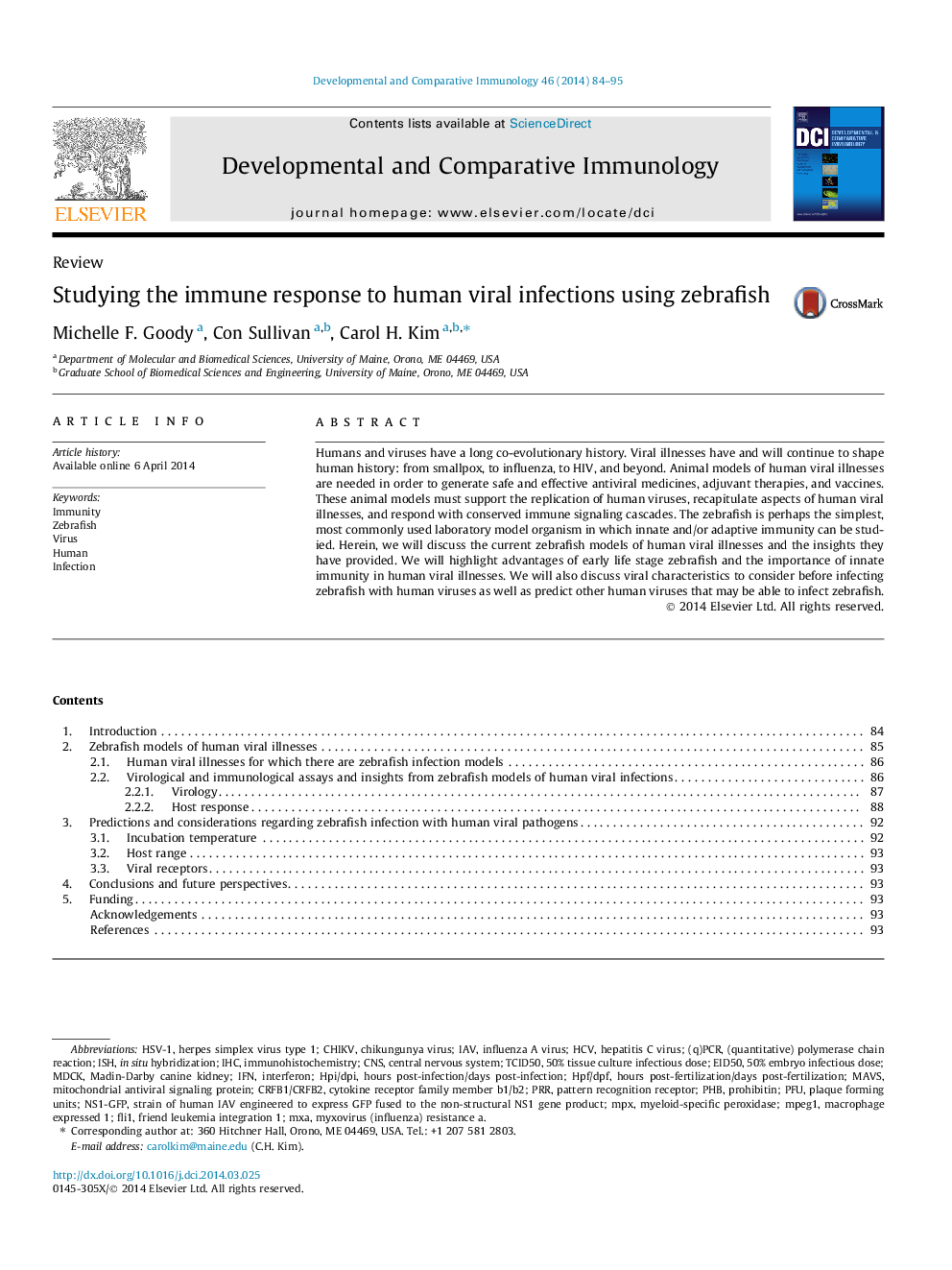| Article ID | Journal | Published Year | Pages | File Type |
|---|---|---|---|---|
| 2429032 | Developmental & Comparative Immunology | 2014 | 12 Pages |
•There are unique opportunities to learn about virus–host interactions in zebrafish.•Innate immunity can be both beneficial and detrimental in human viral illnesses.•Temperature, host range, and receptors are human virus characteristics to consider.
Humans and viruses have a long co-evolutionary history. Viral illnesses have and will continue to shape human history: from smallpox, to influenza, to HIV, and beyond. Animal models of human viral illnesses are needed in order to generate safe and effective antiviral medicines, adjuvant therapies, and vaccines. These animal models must support the replication of human viruses, recapitulate aspects of human viral illnesses, and respond with conserved immune signaling cascades. The zebrafish is perhaps the simplest, most commonly used laboratory model organism in which innate and/or adaptive immunity can be studied. Herein, we will discuss the current zebrafish models of human viral illnesses and the insights they have provided. We will highlight advantages of early life stage zebrafish and the importance of innate immunity in human viral illnesses. We will also discuss viral characteristics to consider before infecting zebrafish with human viruses as well as predict other human viruses that may be able to infect zebrafish.
